Facial surgery
Nose shape correction
Breast surgery
Other operations
Non-surgical procedures
Nose shape correction (rhinoplasty)
Nose shape correction (rhinoplasty) is performed in order to reduce the size of the nose, change its shape, correct the nasolabial angle, narrow nostrils, straighten the nasal septum, or restore the nose.
Procedure
The surgery is performed under general anaesthetic. A w-shaped incision is made in the nasal septum, and two curved incisions are made in the inner surface of the nostrils. The cartilage, nasal bone and, if necessary, nasal septum are then adjusted during the operation. Finally, the incisions are sewn up and special splints and dressings are applied to maintain the desired shape of the nose until the bones consolidate.
Nose shape correction (rhinoplasty) is performed in order to reduce the size of the nose, change its shape, correct the nasolabial angle, narrow nostrils, straighten the nasal septum, or restore the nose.
Procedure
The surgery is performed under general anaesthetic. A w-shaped incision is made in the nasal septum, and two curved incisions are made in the inner surface of the nostrils. The cartilage, nasal bone and, if necessary, nasal septum are then adjusted during the operation. Finally, the incisions are sewn up and special splints and dressings are applied to maintain the desired shape of the nose until the bones consolidate.
| Rhinoplasty | ||||
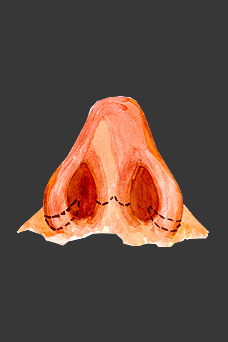 |
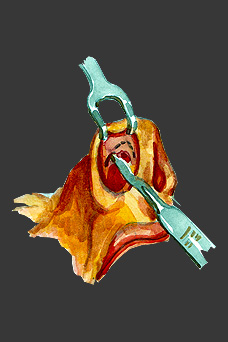 |
|||
| Skin incisions | Mucosa incision | |||
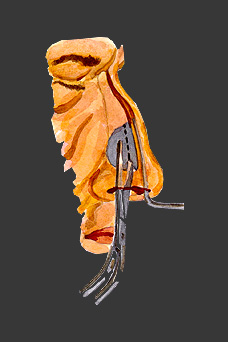 |
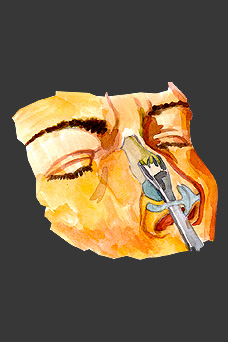 |
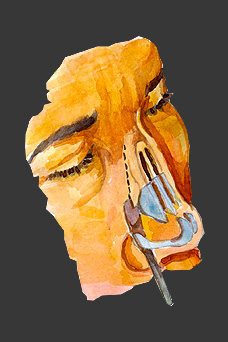 |
||
| Cartilage reduction | Reduction of nasal hump | Dissection of nasal bone |
Operation risks
Nose correction, like any other intervention, may have adverse effects such as reactions to anaesthesia, postoperative pain, eye irritation, tightness, prolonged bleeding, wound edge separation, wound infection, and scar hypertrophy. Other possible complications or adverse reactions should be discussed with the plastic surgeon during a consultation.
Postoperative period
Healing normally lasts for several weeks or months, but the splint is removed after a week, or two. Bruising and swelling persist for several weeks. The nose should not be traumatized during physical activity for at least 6 months; other regular physical activity can be resumed in a couple of days.
The final aesthetic result is visible only at the end of healing, but the shape changes are visible almost immediately after the surgery. The effect of the surgery is long lasting.
| Tautrimas Aštrauskas - Certified Plastic & Reconstructive Surgeon www.blossomandjasmine.com |
 |
 |
 |
solution: inverse.lt |
